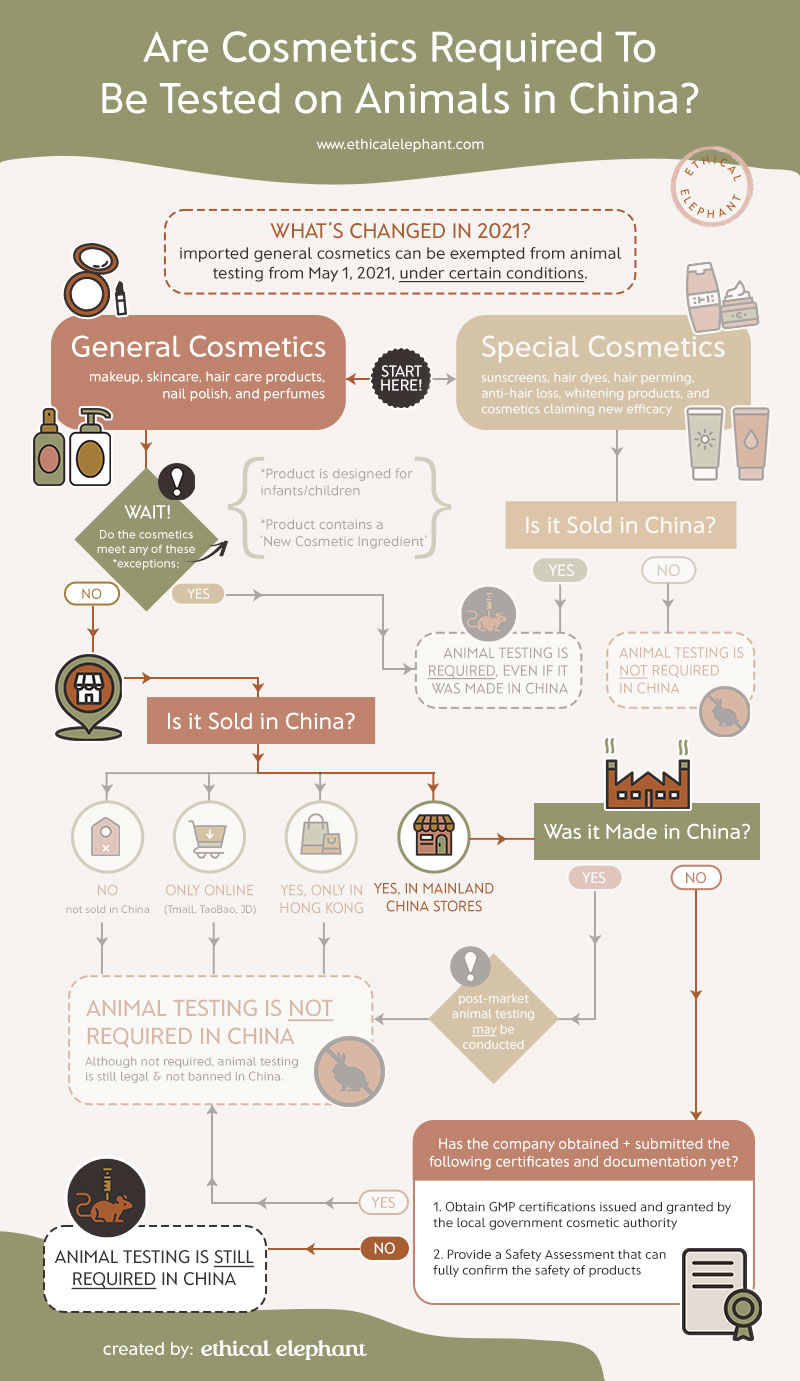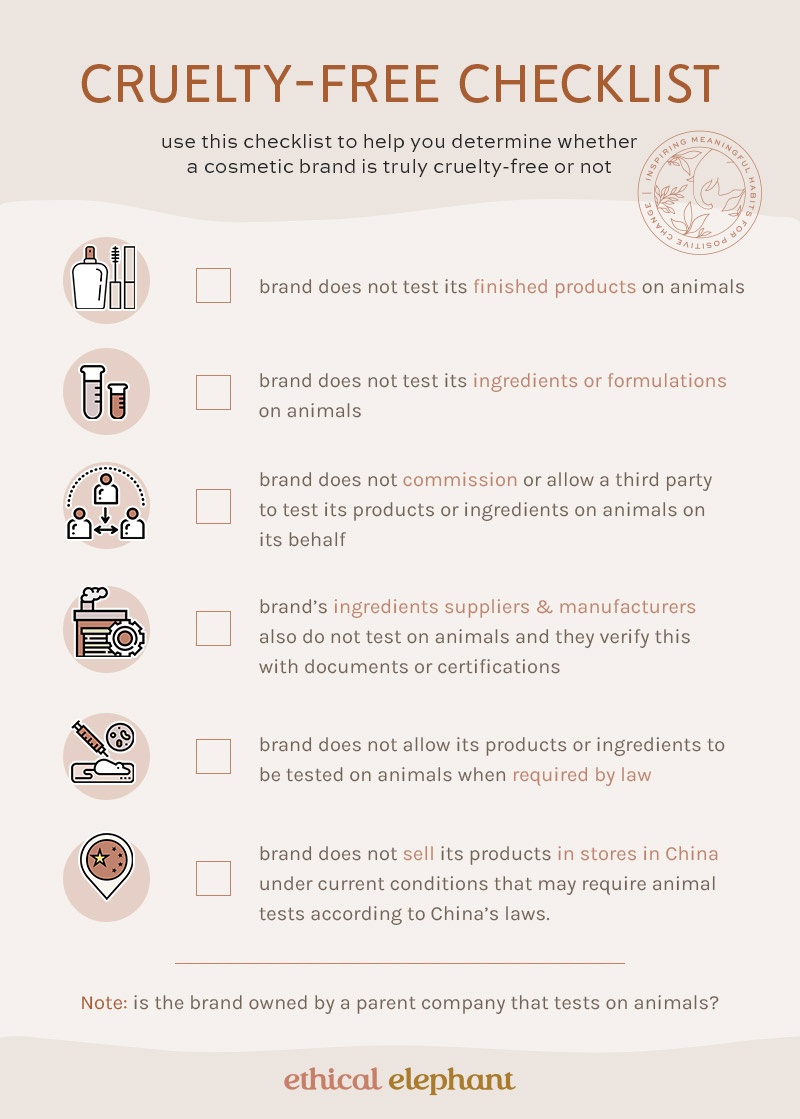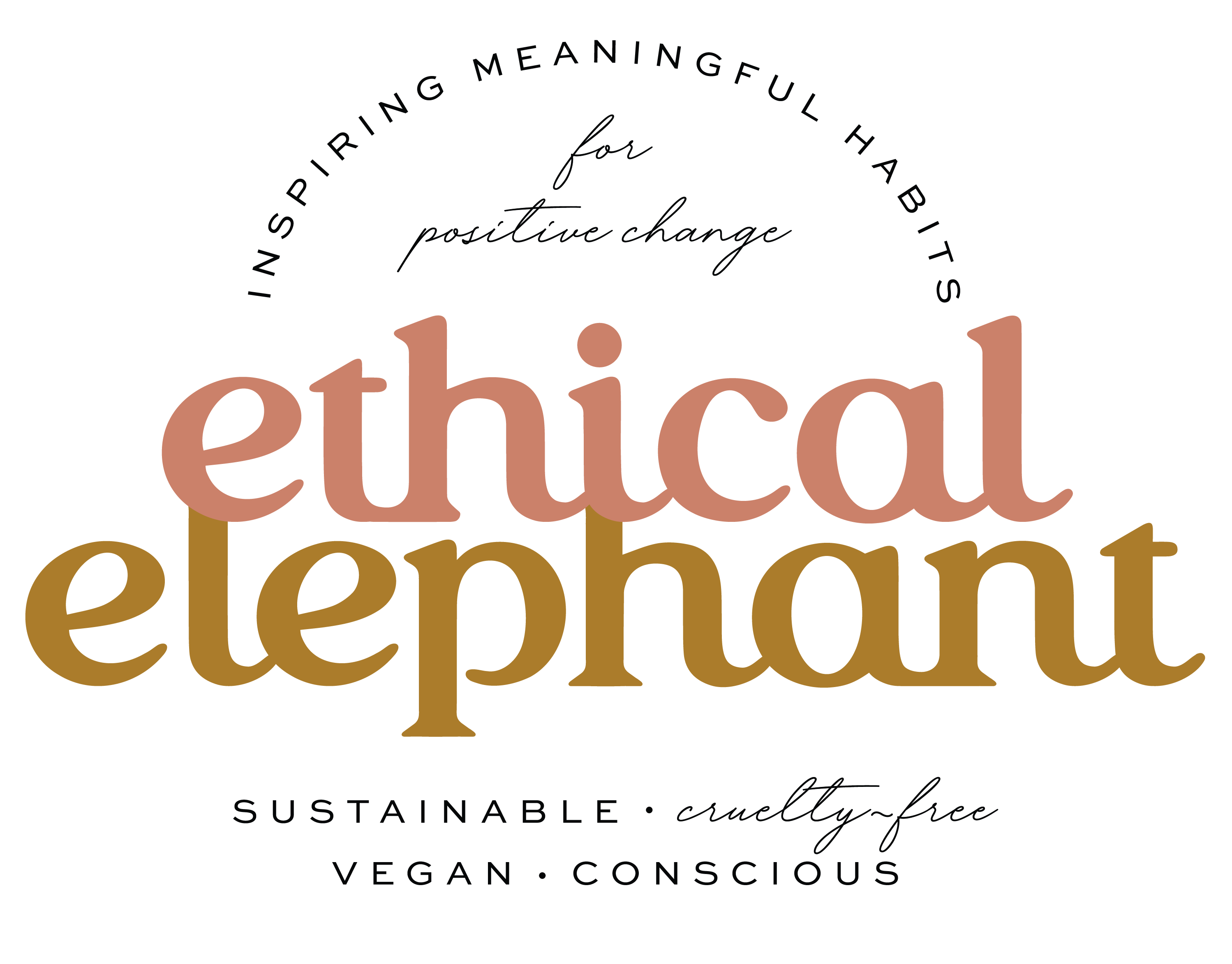This post may contain affiliate links that at no additional cost to you, I may earn a small commission.
Is Helena Rubinstein Cruelty-Free?
☠️ Helena Rubinstein is NOT cruelty-free in 2023. Helena Rubinstein allows its products to be tested on animals when required by law, including when selling in stores in mainland China.
Helena Rubinstein’s Animal Testing Policy
When asking, does Helena Rubinstein test on animals? We must look beyond to ensure none of Helena Rubinstein’s ingredients or suppliers test on animals. And they don’t sell in any country or under conditions that may require animal testing by law.
To assess whether brands are cruelty-free, I always start with the company’s official animal testing policy on their website.
However, I couldn’t find Helena Rubinstein’s animal testing statement anywhere on its website.
So I reached out to Helena Rubinstein to ask for more information. More specifically, I wanted to know if they commission or allow others to test, not just their finished products but their ingredients on animals, including when selling in countries that require animal testing (like mainland China).
“Thank you for getting in touch with Helena Rubinstein, in relation our current animal testing policy.
Our consumers’ health and safety have always been an absolute priority for L’Oréal. As is the support of animal welfare. L’Oréal does not carry out any test on animals anywhere in the world, and has been at the forefront of alternative methods for over 30 years. We are fully compliant with the European Marketing ban on ingredient testing which became law in March 2013.
L’Oréal has led the way in researching alternative testing methods – such as Episkin – which have made the ban on ingredient testing possible. We opened an Episkin* center in Shanghai in 2014 to produce reconstructed skins in order to develop in vitro safety tests, that are alternative to animals. L’Oréal is making this technology available to the Chinese authorities.
You can find out more about L’Oréal’s position on animal testing on our website:
https://www.loreal.com/sustainability/l’or%C3%A9al-answers/the-question-of-animal-testing/frequently-asked-questions
L’Oréal has been the most active company working alongside the Chinese authorities and scientists for over 10 years to have alternative methods recognized and permit the cosmetic regulation to evolve towards a total and definite elimination of animal testing.
Since 2014, certain products manufactured and sold in China like shampoo, body wash or make-up are no longer tested on animals. For more information: http://bit.ly/2dP0Rnz
In China, the health authorities can decide to conduct animal tests for certain cosmetic products. Some of our brands that are not present in China have chosen to use a “cruelty-free” logo. Brands present in China cannot carry the “cruelty-free” logo due to the cosmetic regulation in China.”
Based on their response, Helena Rubinstein has the same animal testing policy as L’Oreal, where both state they make an exception to allow their products to be tested on animals in China, where health authorities conduct animal tests.
Truly cruelty-free brands will never allow their products or ingredients to be tested on animals. Cruelty-free companies have a policy where if the law requires them to test on animals then they will refuse to sell their products under those conditions.
Unfortunately, L’Oreal and Helena Rubinstein state they will allow their products and ingredients to be tested on animals when the law requires it in China. For those reasons, Helena Rubinstein is NOT cruelty-free.
Is Helena Rubinstein Sold in China?
In my research, I discovered that Helena Rubinstein products are indeed sold in stores in mainland China.
Below is a screenshot of Helena Rubinstein store locator showing results in China:

But Doesn’t China No Longer Test on Animals?
With the recent changes to China’s animal testing laws, cosmetic companies can now export and sell some of their cosmetics in China without animal testing only if they meet ALL of the following preconditions first.
- ONLY sell ‘general’ cosmetics (like makeup, skincare, haircare, nail polish, and perfumes)
- must NOT sell any ‘special’ cosmetics like sunscreens, hair dye, hair perming, or other cosmetics claiming new efficacy
- must NOT sell products designed for infants or children
- must NOT sell products that contain a ‘New Cosmetic Ingredient’
- AND if post-market testing is required, then the company must have a policy in place where it will RECALL its products rather than allow its products to be tested on animals
Also, products must meet ONE of the following in order to avoid animal testing in China:
- manufactured in China, or the final assembly is in China
- if manufactured outside of China and then exported to China, companies must obtain the proper product safety certificates and documents
However, it’s not stated anywhere that Helena Rubinstein has taken any steps to meet the above preconditions in order to avoid animal testing while selling in China.
Follow the highlighted lines in the graphic below to see why most cosmetics sold in China (like Helena Rubinstein) are still required by law to be tested on animals in 2023.

Because Helena Rubinstein has decided to sell in mainland China stores, they must consent and pay to have their products tested on animals. That’s why most cosmetics brands selling in mainland China cannot be considered cruelty-free in 2023.
Although Helena Rubinstein may not be conducting these animal tests themselves, they knowingly allow Chinese authorities to test their products on animals in order to sell in China.
For those reasons, we would not consider Helena Rubinstein to be cruelty-free by our standards.
☕️ Every week, I continue to reach out to new brands while trying my best to keep current brands updated. If you found any of my posts or guides helpful, consider Buying Me A Coffee! I would greatly appreciate it! ❤️
Cruelty-Free Policies
Many truly cruelty-free brands have chosen not to sell their products in China under conditions where animal tests may be required. Unfortunately, Helena Rubinstein refuses to do the same and therefore cannot be considered cruelty-free.
At ethical elephant, we always assess a company’s cruelty-free policy using our Cruelty-Free Checklist. This ensures no animal testing was performed by the brand itself, its suppliers, or by any third parties, including when required by law.
See below for our complete cruelty-free checklist. Since Helena Rubinstein already does not meet the last two, we cannot classify the brand as being cruelty-free.

Is Helena Rubinstein Certified Cruelty-Free?
Helena Rubinstein is not certified cruelty-free by any third-party cruelty-free certifications like Leaping Bunny or PETA.
Since Helena Rubinstein is not certified cruelty-free by a third party, no one is substantiating or auditing Helena Rubinstein’s cruelty-free commitments and claims.
Is Helena Rubinstein Owned By A Non-Cruelty-Free Parent Company?
Yes. Helena Rubinstein is owned by L’Oreal, a parent corporation that still engages in animal testing in 2023.
Some cruelty-free consumers may choose to purchase and support cruelty-free brands owned by animal-tested parent corporations as they hope it will convince the parent company to become cruelty-free.
But in this case, Helena Rubinstein is NOT cruelty-free, and neither is its parent corporation, L’Oreal.
Does Helena Rubinstein Test on Animals?
To wrap up, Helena Rubinstein allows its products to be tested on animals when required by law, like when selling in China. Therefore, we would NOT consider Helena Rubinstein to be a cruelty-free brand.
Currently, Helena Rubinstein is on our List of Brands to Avoid – Animal Tested.
Is Helena Rubinstein Vegan?
❌ Helena Rubinstein is NOT vegan. Helena Rubinstein does not claim or market itself to offer any vegan-friendly options. And since Helena Rubinstein engages in animal testing in some capacity, we wouldn’t consider any Helena Rubinstein products vegan anyways.
In order for products to be considered vegan by ethical elephant’s standards, the products and their ingredients must not be tested on animals anywhere in the world. Also, they must not contain any animal-derived ingredients or by-products.
Cruelty-Free Alternatives to Helena Rubinstein
Looking to switch to cruelty-free products? Here are some cruelty-free brands to check out:
- Augustinus Bader
- Tata Harper *owned by Amorepacific
- Dr. Barbara Sturm
- Westman Atelier
- Tatcha *owned by Unilever







